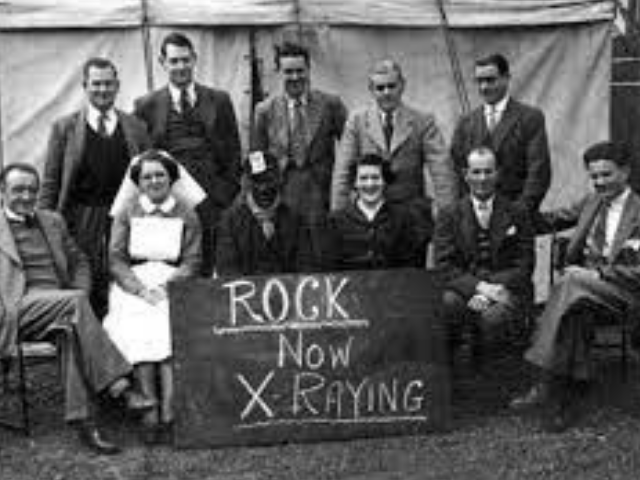
Wales’ rich heritage of research excellence
10 March
As we think about where we would be without research, we reflect on a pioneering study of Welsh miners’ lung disease from 1948 that changed the face of public health forever.
Blackened lungs
Back when the NHS was established in 1948, more than 700,000 men worked gruelling, dirty and dangerous shifts in Britain’s coal mines. Over 22,000 struggled with the lung disease pneumoconiosis, or ‘black lung’, with 85% of those living and working in South Wales.
It was this disease that Archie Cochrane, a doctor at Llandough Hospital in Penarth, tackled head-on with an ambitious study of entire mining communities in the Rhondda Fach and Aberdare valleys.
On a scale never before seen, chest x-rays and detailed health surveys were performed to see whether a particularly crippling form of lung disease –progressive massive fibrosis - was caused by a combination of black lung and tuberculosis.
They found out much more than that, linking coal dust with a range of disabilities and ill health amongst these communities.
An astonishing 95% of the community – some 25,000 people – agreed to take part thanks to the highly organised, intensive work of a field team of medics, nurses and disabled miners using ground-breaking methods (including offers of lifts to x-ray clinics in Archie’s Jaguar!).
That remarkable level of participation and wealth of detailed data collected demonstrated the feasibility of such an approach, launching a new era of public health research and earning Cochrane the mantle ‘the father of evidence-based medicine’.
Those remarkable men of Caerphilly
In the late 1960’s, Cochrane’s work investigating whether aspirin could prevent heart disease inspired his colleague Professor Peter Elwood to study how lifestyle habits affect chronic disease and health.
Tracking the lifestyle habits of 2,500 middle aged men from Caerphilly South Wales since 1979, the Caerphilly Cohort study became and remains one of the most important health studies ever conducted. Looking at how our environment influences risk of chronic diseases, like heart disease, diabetes and obesity, is entirely dependent on the dedication and commitment of the men taking part. These 2,500 men of Caerphilly have for 19 years continuously given their time and data, including 5am blood tests before their first meal of the day, to help us better understand health.
The study’s greatest success is in giving rock-solid evidence of the cumulative benefits of healthy habits for people’s health. Although now common knowledge, this study this was the first to show that not smoking, having low alcohol intake, maintaining a healthy weight, having a balanced diet and exercising regularly dramatically lowered peoples’ risk of conditions like diabetes, cancer, heart disease and dementia. It also showed that the more of these habits someone demonstrated, the greater the benefit.
Professor John Gallacher, director of Dementia’s Platform UK, who worked on the study said:
“The Caerphilly study has been ground-breaking for the range and depth of findings that it gas produced with the publication of many hundreds of scientific papers.
“The study shows how a generous community, like Caerphilly, can have a truly international impact.
“Through lessons learned from the Caerphilly study, a new generation of bigger and more detailed population studies has been born.
“Well done Caerphilly!”
To get the latest research news in Wales straight to your inbox, sign up for our weekly bulletin
*Image credit: Cardiff University Library, Cochrane Archive, University Hospital Llandough*